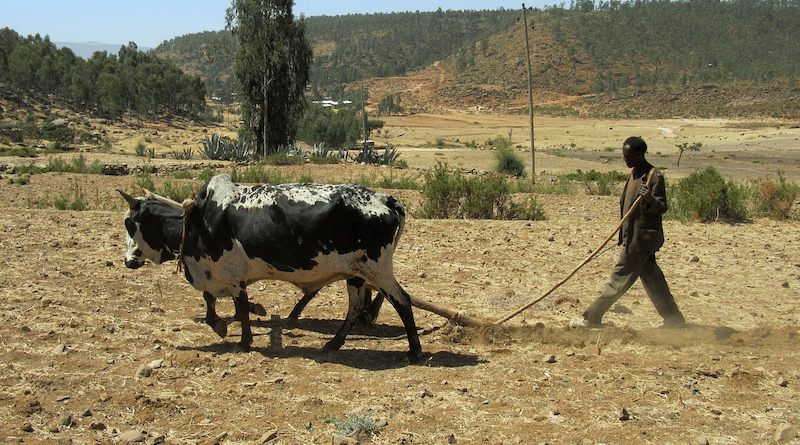The Horn Of Africa States: Islamic Finance Support For Agriculture – OpEd
Agriculture is an important in human activity. It feeds most people across the globe and is reported that demand for food may grow by 70% by 2050 with an annual US$ 80-83 billion-worth of investment requirements, according to the Food and Agricultural Organization and the World Bank projections on how to feed the world. The demand would mostly come from populations of developing countries which are growing faster than the developed world populations. This would require, therefore, higher investments in the years to come in those developing countries, which most financial institutions shy away from.
This will be a major challenge for those countries and the Horn of Africa is one of those regions whose populations are growing fast. At present this is reported to be in the region of some 160 million people, which is expected to rise to some 285 million people by 2050. The Horn of Africa States is one of those regions beset by its own idiosyncrasies and conflicts which are mostly political quarrels created by its own politicians and based on ethnicities.
Many farmers and pastoral people in the region are moving away from their traditional livelihoods to urban centers to avoid the continuing conflicts created by the senseless quarreling of the region’s politicians, which adds to the regular hungry of the region. They are serviced by willing NGOs who thrive on the plight of these people. They, indeed, help the politicians create a constant influx of new displaced people from the rural areas to urban centers where there are no employment or source of livelihoods other than meagre food distributions by NGOs from distant lands and countries. It is most unfortunate that even the United Nations bodies participate in this process, instead of helping finance agriculture and food production through all the means which they possess but fail to deploy.
Most rural people in the region live with their wits as no financial institution dares to finance them because of the higher perceived risks – the droughts, the conflicts and the ethnic-based political quarrels of the region’s politicians. In Somalia, for example, few moneyed people are taking over all business activities including agriculture as they hold all the funds of the country as deposits. Since the central banking system is not fully functional, they do whatever they want with the deposits of the populations, mostly financing their own businesses. In Ethiopia, the central bank is too restrictive and does not allow financing to reach the farmers and the pastoral people who are generally the backbone of the economic activities of the region. The market of Eritrea is limited and based on command economy. The Djibouti market is the only which enjoys a proper financial system which operates on international norms and rules, but it is too small to have any impact.
It is perhaps time that governments of the region embarked on helping finance agricultural business, which helps feed its growing population. This could be in the form of formal or informal finance that are designed to meet the liquidity needs of the farmers and pastoral people of the region from planting to harvest and livestock rearing and requirements thereof.
Most financiers find agricultural financing as too risky and in particular when weather conditions may adversely affect production. However, should the financing include irrigation and drilling of wells that are usable in drought seasons, lack of production and defaults would be minimized. It is where importance of Islamic finance of agriculture kicks in. The industry of Islamic finance is equity-based and socially responsible, but its accessibility is limited to most farmers either through restrictive central bank requirements such as the case of Ethiopia or non-existence of any regulatory activities in the case of Somalia. In the case of Eritrea, it is command economy and the whole economic process is government controlled. In Djibouti, the agricultural market is limited.
Islamic finance has developed many products to help finance agriculture and those products include Salam finance, Murabaha, Musaqat contracts, Muzara’a contracts, Mugharasa contracts, Istisna’a contracts and others. They could be used to finance storage buildings to keep outputs, cold storage facilities, milk production facilities, irrigation equipment, tractors and other agricultural equipment, seeds and seedlings, financing fertilizers and fertilizing equipment, drilling of wells and irrigation pipelines and sprays, and even working capital through equity financing processes.
There are no hard statistics on Islamic finance and impact on agriculture in the Horn of Africa as no such data has been collected or compiled as yet. But it certainly would be a major contributor to help in the production of food in the region, which is always the subject of international calls for assistance. There is certainly a need to increase the number of Islamic financial institutions in the region to finance agriculture and food production as demand is bound to grow by the year in the coming years.
One may perhaps note that this climate change which is threatening the world and the region in particular is perhaps reminding us of the need not to overgraze, not to monocrop, and to respect those who till the land or raise the livestock we need.

